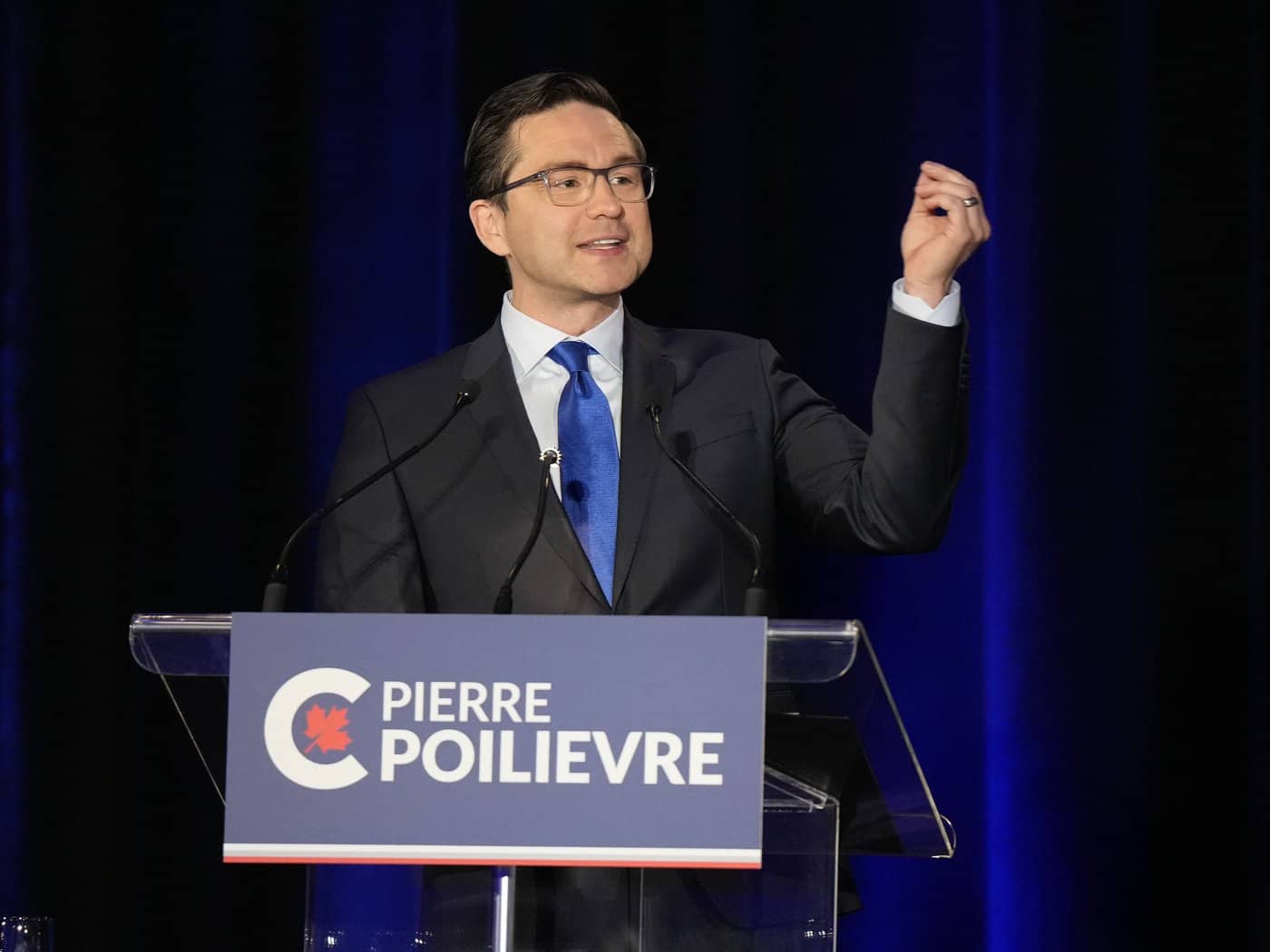World Sikh Organization slams Pierre Poilievre for ‘playing politics’ in diplomatic spat with Canada
Published October 24, 2023 at 10:16 am

The World Sikh Organization says Conservative Leader Pierre Poilievre is “siding with a hostile foreign government” by blaming the prime minister for a diplomatic rift amid concerns India was involved with the assassination of a Canadian citizen.
Prime Minister Justin Trudeau announced in the House of Commons last month that Canadian intelligence services are investigating “credible” information about “a potential link” between India’s government and the killing of Sikh leader Hardeep Singh Nijjar in British Columbia.
Trudeau’s revelation led to India halting visa services for Canadian citizens, leaving many travellers and agencies in Brampton and across Canada scrambling, and Canada’s removal of diplomats in India after New Delhi threatened to strip diplomatic immunities from them and their families.
But in an interview Namaste Radio Toronto posted on Saturday, Poilievre placed the blame for Canada’s row with India on Trudeau – a move that has Sikh activists accusing the Conservative leader of “playing politics.”
“It’s fine to have our disagreements and to hold each other accountable, but we have to have a professional relationship … with the Indian government,” Poilievre said in the interview.
He also blamed Trudeau for the “aggression shown to Indian diplomats at public events,” claiming the prime minister is turning Canadians against each other and citing vandalism at Hindu places of worship in Canada without pointing to any specific examples.
But the World Sikh Organization in Canada argues Poilievre is indirectly pointing the finger at Sikhs.
“We’re talking about the violation of Canadian sovereignty and the assassination of Canadian citizen on Canadian soil, (allegedly) by India,” said Balpreet Singh, a lawyer with the World Sikh Organization.
“I’m very disappointed to see His Majesty’s loyal opposition leader siding with a hostile foreign government against Canadian intelligence, Five Eyes intelligence and frankly the memory of a dead Canadian citizen.”
Singh said his group condemns calls for violence against Hindu people, but he said Poilievre is siding with New Delhi against Canadian interests.
“We shouldn’t be playing politics with a matter of this gravity,” he said.
For years, India has said Nijjar, a Canadian citizen born in India, has links to terrorism, an allegation he denied. Nijjar was working to organize an unofficial Sikh diaspora referendum on independence from India at the time of his killing, similar to one previously held in Brampton.
“The situation is not a result of Prime Minister Trudeau’s actions or individuals in the Sikh community who have spoken out against Indian diplomats.”
New Delhi has long accused Canada of harbouring extremists who want to carve out a Sikh state within India called Khalistan, and earlier this year, India called out protests by Sikh separatist groups in Canada and posters offering cash rewards for the home addresses of India’s diplomats.
A parade float in Brampton recreating the assassination of Indira Gandhi was also blasted by India for the “glorification of violence.”
New Delhi formally called on Canada to better uphold its duty to protect foreign diplomats and in late August, with India’s high commissioner to Canada Sanjay Kumar Verma saying his country was “very satisfied” that the Liberal government had responded appropriately and that its diplomats were secure.
While Poilievre wasn’t asked about the Nijjar case in the interview, he has previously said that those responsible for the homicide must be prosecuted. He has also urged Trudeau to provide more of its information on the case, despite declining security clearance which would make him privy to the top-secret details.
His office declined to comment about the interview Monday
This past weekend, India’s foreign affairs minister Subrahmanyam Jaishankar said his country might end its freeze on Canadian visas if Canada better ensures the safety of Indian diplomats, despite his own envoy to Ottawa saying otherwise.
Jaishankar also said Sunday he takes issue with the federal Liberals and “certain segment of Canadian politics, and the policies which flow from that.”
University of British Columbia professor Vina Nadjibulla said that’s the first time India has ever explicitly indicated its issues with Canada fall along political lines.
“It’s quite surprising, for a foreign secretary like Jaishankar to say that … essentially pointing at the Liberal government and at the prime minister himself,” she said.
Nadjibulla said she’s seen “troubling” posters around Surrey, B.C., that call for violence toward Indian government officials.
“The challenge that … countries that have large diasporas of Sikh communities have is to obviously protect freedoms of expression and freedom of assembly, but also recognize that there is a serious concern for India when it comes to this issue,” she said.
“We have to engage both sides.”
With files from the Canadian Press
INsauga's Editorial Standards and Policies

